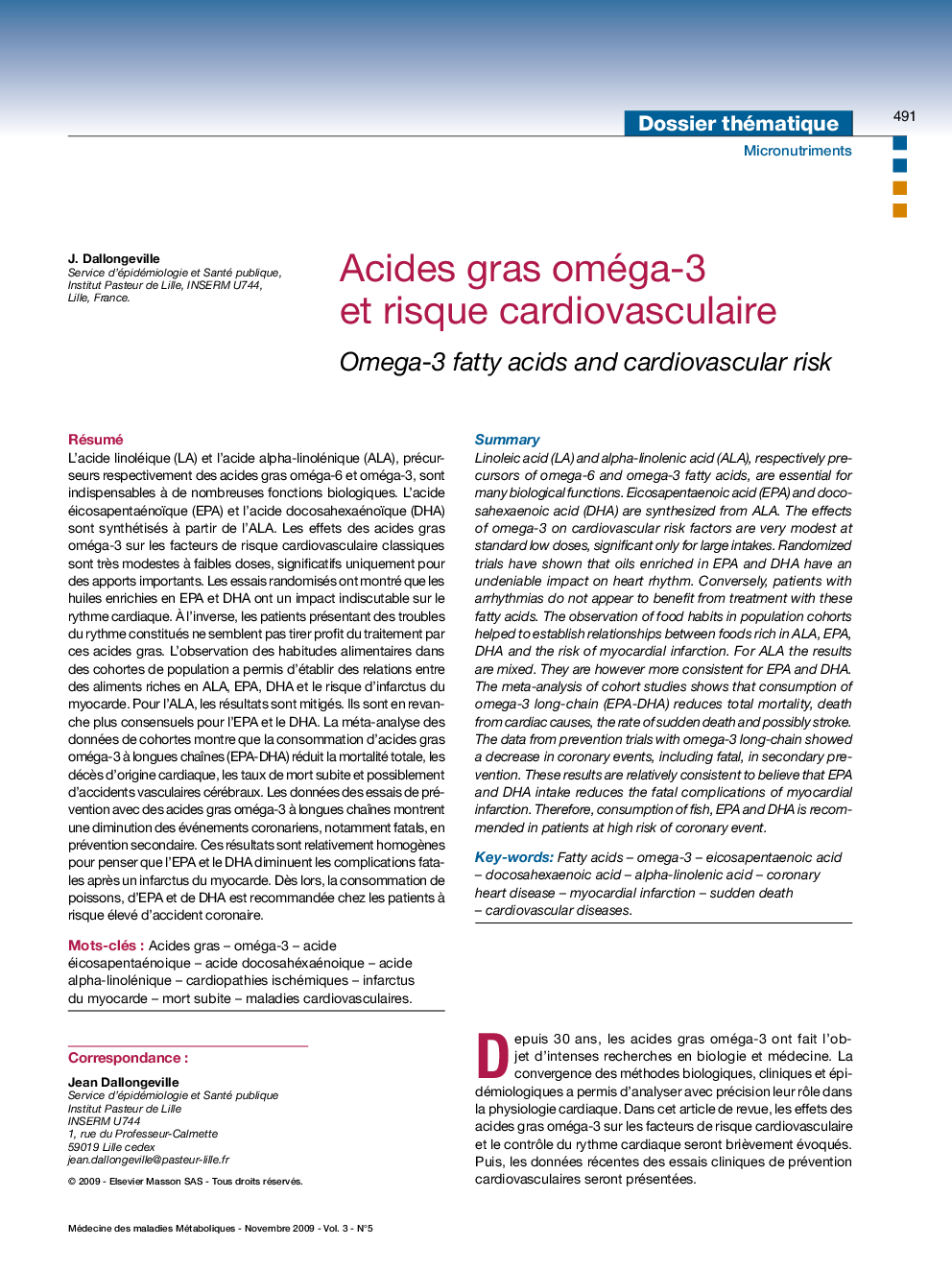| Article ID | Journal | Published Year | Pages | File Type |
|---|---|---|---|---|
| 3275169 | Médecine des Maladies Métaboliques | 2009 | 5 Pages |
Abstract
Linoleic acid (LA) and alpha-linolenic acid (ALA), respectively precursors of omega-6 and omega-3 fatty acids, are essential for many biological functions. Eicosapentaenoic acid (EPA) and docosahexaenoic acid (DHA) are synthesized from ALA. The effects of omega-3 on cardiovascular risk factors are very modest at standard low doses, significant only for large intakes. Randomized trials have shown that oils enriched in EPA and DHA have an undeniable impact on heart rhythm. Conversely, patients with arrhythmias do not appear to benefit from treatment with these fatty acids. The observation of food habits in population cohorts helped to establish relationships between foods rich in ALA, EPA, DHA and the risk of myocardial infarction. For ALA the results are mixed. They are however more consistent for EPA and DHA. The meta-analysis of cohort studies shows that consumption of omega-3 long-chain (EPA-DHA) reduces total mortality, death from cardiac causes, the rate of sudden death and possibly stroke. The data from prevention trials with omega-3 long-chain showed a decrease in coronary events, including fatal, in secondary prevention. These results are relatively consistent to believe that EPA and DHA intake reduces the fatal complications of myocardial infarction. Therefore, consumption of fish, EPA and DHA is recommended in patients at high risk of coronary event.
Keywords
Related Topics
Health Sciences
Medicine and Dentistry
Endocrinology, Diabetes and Metabolism
Authors
J. Dallongeville,
